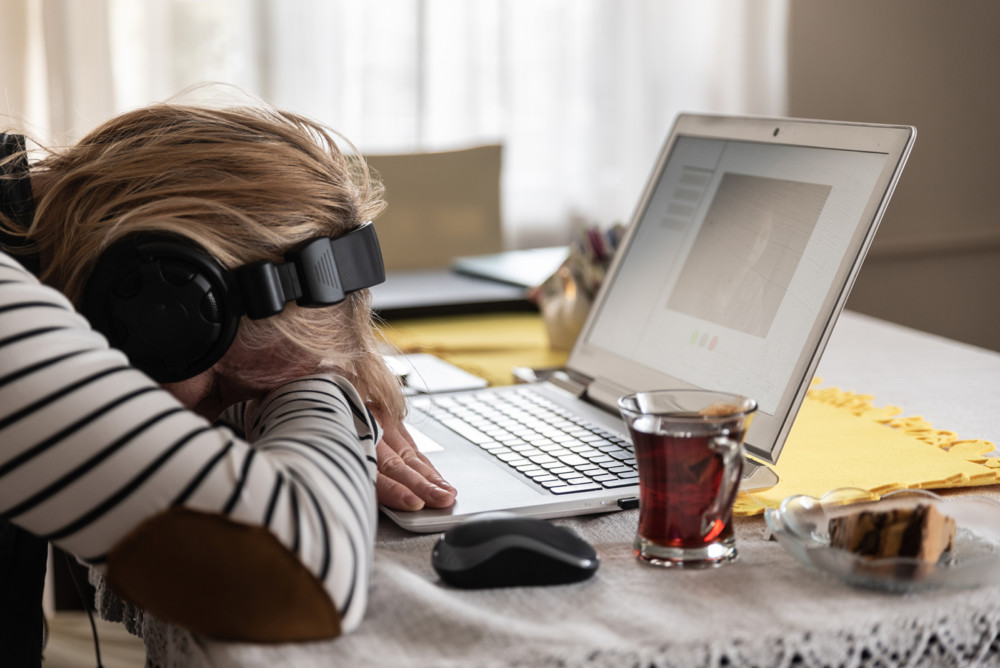By Milan Polk
Chicago Tribune
WWR Article Summary (tl;dr) As the potential for remote work looks like it may be sticking around for quite some time, Milan Polk shares some tips to better separate your work and home life.
Chicago
Without the commute to the office or lunch hours with co-workers thanks to COVID-19, the boundaries of a work day are blurring, leaving employees less sure of when to take breaks or log off at the end of the day.
A recent study from the National Bureau of Economic Research (NBER) found that the average workday around the world is 48.5 minutes longer than before the pandemic. The study examined how work email and meeting patterns changed in the two months following a government-mandated pandemic lockdown in 16 cities, including Chicago.
Dr. Alexandra Solomon, a professor and licensed psychologist at the Family Institute at Northwestern University, said work days can feel longer in such a stressful time.
“I think time is doing very strange things,” Solomon said. “Even if the hours on the page are the same objectively, the feeling is that we’re working more.”
For those whose homes have become their offices, with the potential for remote work sticking around for quite some time, here are some tips to better separate your work and home life.
Keep a routine
Before the pandemic, a person might have found solace in a regular cup of coffee before their first meeting, or in having a morning exercise regimen. Jaclyn Jensen, an associate professor at the Driehaus College of Business at DePaul University, said to keep these habits even though you no longer travel into the office.
“We don’t have that commuting anymore, that commute space as separation,” said Jensen. “If what helps you get going was a coffee and an exercise and reading the news, that still provides, probably, some clear benefits to you.”
Talk to your boss and your team
The NBER study found that people are having more frequent (but shorter) meetings and receiving more emails, particularly after business hours. Jensen said it’s because people are missing their daily interactions with co-workers.
“I think the absence of a casual catch-up in the hallway would be a very common occurrence. That isn’t happening anymore,” Jensen said. “And so scheduling a formal time to connect is taking the place of those casual hallway conversations.”
Bosses may also schedule more time to chat, since they can’t stop by an employee’s desk to check in. Jensen said keeping an open line of communication about expectations and deadlines can ease some of the pressure to get work done right away, especially if life at home is creating distractions.
“If the employee is balancing a much bigger plate of responsibilities at home, whether the work is done at 7 a.m. or 7 p.m. maybe doesn’t matter,” Jensen said. “So long as it’s done by Friday at five is the goal.”
Be honest with what you can handle
When virtually working with others, Solomon said it’s important to be honest when you feel overwhelmed, since the combination of work and home being in one place can be stressful.
“I think a really important piece here is self-awareness,” she said. “If you and I are working together on projects, I need to be really careful to not over-promise and under-deliver. That requires me to be able to assess my capacity, and then to be able to be compassionate enough with myself _ and assertive enough with you _ to say, ‘Listen, it’s not realistic to have this done in one day on Monday.'”
Make time for yourself
Working longer may be a reaction to how uncertain the world feels with the pandemic. Solomon said people may find an escape in their jobs.
“There’s something sort of very concrete about focusing on the parts of the world that you can control, and work might be one of those spaces,” Solomon said.
A way to bring more control over your life, Solomon said, is to create boundaries. Scheduling breaks throughout the day, meditating or making time for social calls with friends can reduce stress and make sure that work doesn’t take over your life.
Colleagues Solomon has talked to have deleted email apps on their phones to separate work from their personal mobile devices. Those who worked from home before the pandemic likely have learned a few lessons we can glean from them, as well, she said.
“The challenge of working from home is that you can always be working because there’s no separation,” Solomon said. “What they tell us is you have to put the boundaries in yourself.”
___
Distributed by Tribune Content Agency, LLC.














































































































































































































































































































































































